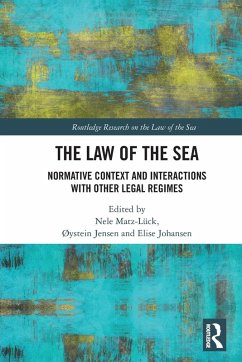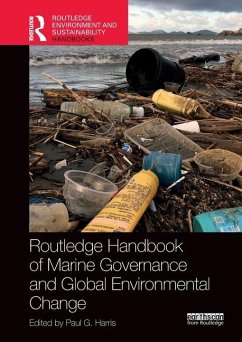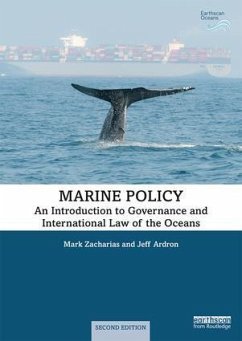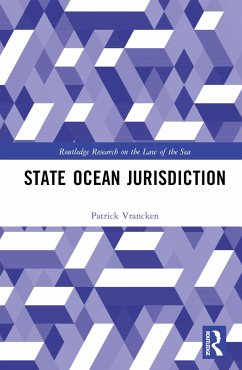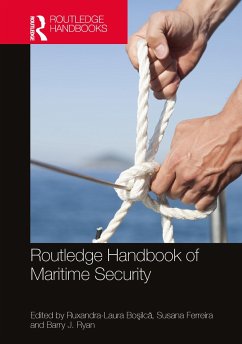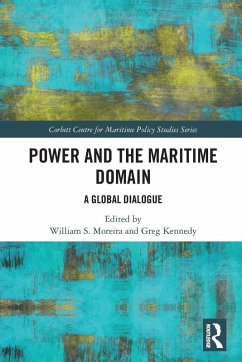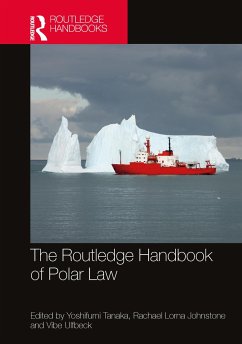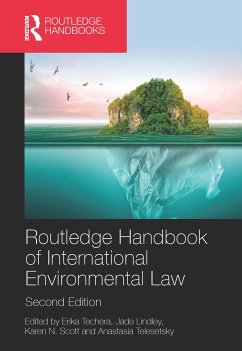
Routledge Handbook of Maritime Regulation and Enforcement

PAYBACK Punkte
27 °P sammeln!
With advances in technology and maritime transport, human use of the ocean now extends beyond the traditional activities of navigation and fishing. Emerging activities such as bioprospecting, deep seabed mineral and hydrocarbon exploration and exploitation, offshore renewable energy developments and marine scientific probes of deep sea areas challenge the applicability of maritime law and policy in new ways.This handbook examines current regulatory and enforcement instruments and mechanisms for different sectors of maritime activity. Covering various jurisdictions, its specially commissioned c...
With advances in technology and maritime transport, human use of the ocean now extends beyond the traditional activities of navigation and fishing. Emerging activities such as bioprospecting, deep seabed mineral and hydrocarbon exploration and exploitation, offshore renewable energy developments and marine scientific probes of deep sea areas challenge the applicability of maritime law and policy in new ways.
This handbook examines current regulatory and enforcement instruments and mechanisms for different sectors of maritime activity. Covering various jurisdictions, its specially commissioned chapters are authored by some of the world's foremost authorities on maritime law, and offer unique perspectives on maritime law, policy and practice.
This highly relevant collection is organised into four parts:
- International Law Considerations in Maritime Regulation and Enforcement
- Role of States and other International Actors in Maritime Regulation and Enforcement
- Regulation and Enforcement in Different Maritime Sectors
- Current Issues and Future Challenges
This comprehensive reference work will be of interest to scholars and students of maritime law, practitioners and non-lawyers interested in the regulation of offshore areas, as well as policy-makers.
This handbook examines current regulatory and enforcement instruments and mechanisms for different sectors of maritime activity. Covering various jurisdictions, its specially commissioned chapters are authored by some of the world's foremost authorities on maritime law, and offer unique perspectives on maritime law, policy and practice.
This highly relevant collection is organised into four parts:
- International Law Considerations in Maritime Regulation and Enforcement
- Role of States and other International Actors in Maritime Regulation and Enforcement
- Regulation and Enforcement in Different Maritime Sectors
- Current Issues and Future Challenges
This comprehensive reference work will be of interest to scholars and students of maritime law, practitioners and non-lawyers interested in the regulation of offshore areas, as well as policy-makers.





